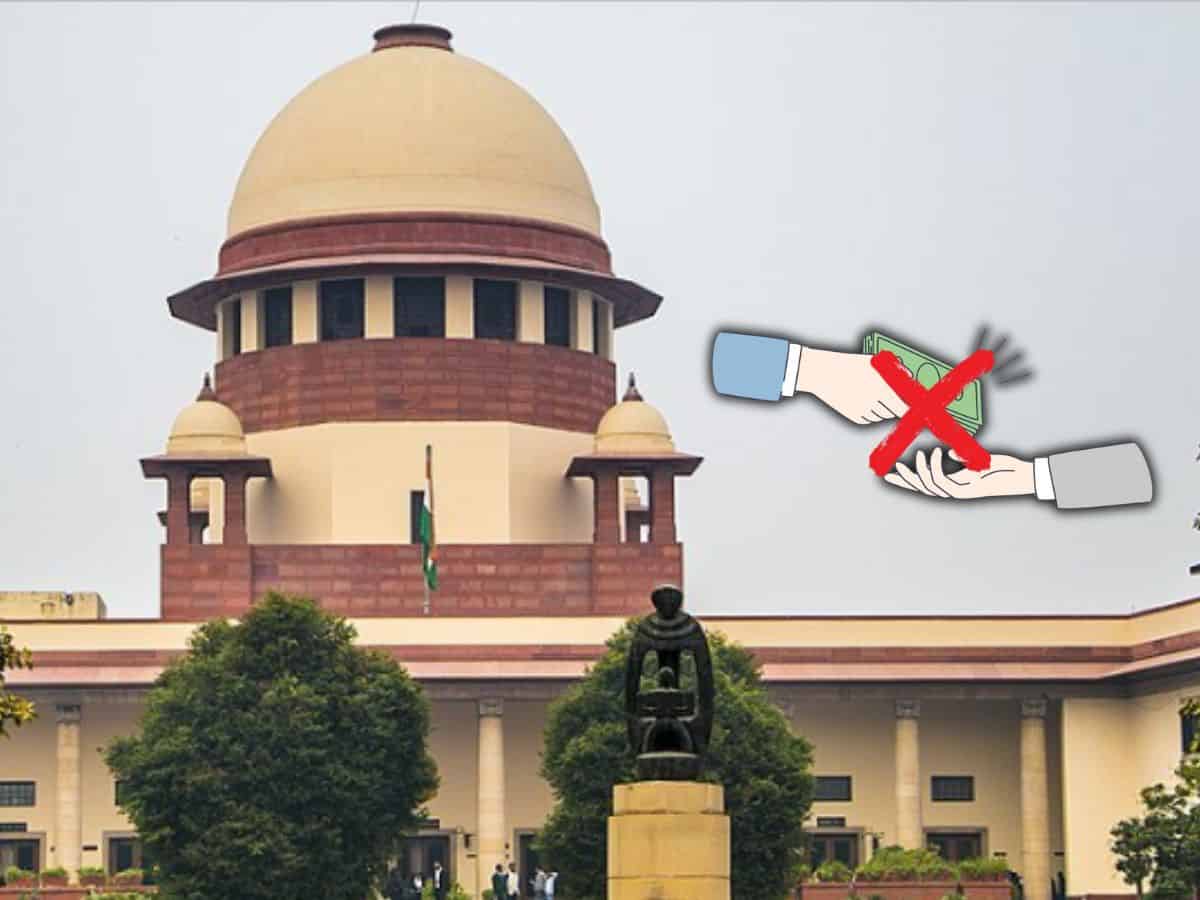
New Delhi: Following is the chronology of events that led to Supreme Court’s landmark verdict holding that MPs and MLAs taking bribes to vote or make a speech in the House are not immune from criminal prosecution:
* April 17, 1998: A five-judge Constitution bench, by 3:2 majority, held in the the Narasimha Rao vs CBI case, also known as JMM bribery case, that lawmakers have immunity against criminal prosecution for any speech made and the vote cast inside the House under Articles 105(2) and 194(2) of the Constitution
* February 17, 2014: Jharkhand HC refuses to quash criminal case against JMM leader Sita Soren for allegedly taking bribe in Rajya Sabha polls in 2012
* September 23, 2014: A two-judge SC bench places before a larger bench the plea of JMM leader Sita Soren
* March 7, 2019: A three-judge bench refers the issue related to immunity of lawmakers to a larger bench
*September 20, 2023: A five-judge bench refers the issue and reconsideration of the 1998 verdict to a bench of seven judges
*October 5, 2023: The seven-judge bench headed by CJI DY Chandrachud reserves judgment
* March 4, 2024: Observing that bribery is not protected by parliamentary privileges, the seven-judge bench overturns five-judge bench’s interpretation in the 1998 verdict in the JMM bribery case.
It holds that MPs and MLAs taking bribes to vote or make a speech in the House are not immune from criminal prosecution.
A tale of contradictory SC verdicts
In the 2012 Rajya Sabha elections, Jharkhand Mukti Morcha (JMM) legislator Sita Soren had accepted bribe to vote in favour of independent candidate R K Agarwal but did not vote for him, an act that triggered a CBI probe under the provisions of the Prevention of Corruption Act.
Sita Soren, the daughter-in-law of JMM founder Shibu Soren, sought refuge in the Jharkhand High Court citing Article 194 (2) of the Constitution that grants immunity to legislators for whatever they speak or the votes they cast in the legislative assembly or committees.
Sita Soren also argued that as a JMM MLA, she had voted for the party candidate Sanjiv Kumar, who won the Rajya Sabha election.
In 2014, the Jharkhand High Court refused to quash the case filed against her by the Central Bureau of Investigation (CBI), prompting her to move the Supreme Court.
In 2019, a three-judge Bench headed by the then Chief Justice of India Ranjan Gogoi referred the matter to a larger Bench, terming it “a matter of substantial public importance” having “wide ramifications”.
Cases of parliamentary immunity to members of Parliament and legislators were caught in two contradictory verdicts of the Constitution benches of the Supreme Court.
In 1998, a five-member Constitution Bench had held that parliamentarians and legislators enjoyed immunity for their actions on the floor of the House, even if they had taken bribes to vote in a particular manner.
Nine years later, another five-judge Bench of the Supreme Court ruled in the “cash-for-query” scam, that involved parliamentarians accepting money to ask questions in Parliament, were liable to be expelled from Parliament permanently.
When Sita Soren’s case came before the Supreme Court in 2019, the three-member Bench led by the then Chief Justice of India Ranjan Gogoi referred the matter to a larger Bench.
At the core of the dispute was the issue of parliamentary privilege available to the legislature, lawmakers and parliamentary committees under Articles 105 and 194 of the Constitution.
According to Article 105(2): “No member of Parliament shall be liable to any proceedings in any court in respect of anything said or any vote given by him in Parliament or any committee thereof, and no person shall be so liable in respect of the publication by or under the authority of either House of Parliament of any report, paper, votes or proceedings.”
Article 194 is identically worded.
Parliamentary privilege is needed to provide complete freedom of speech to lawmakers and to ensure that they are free to speak their minds without bothering about the legal consequences of their statements and votes.
The Supreme Court verdict on Monday, March 4, appears to have brought down the curtains on the contradictions.
